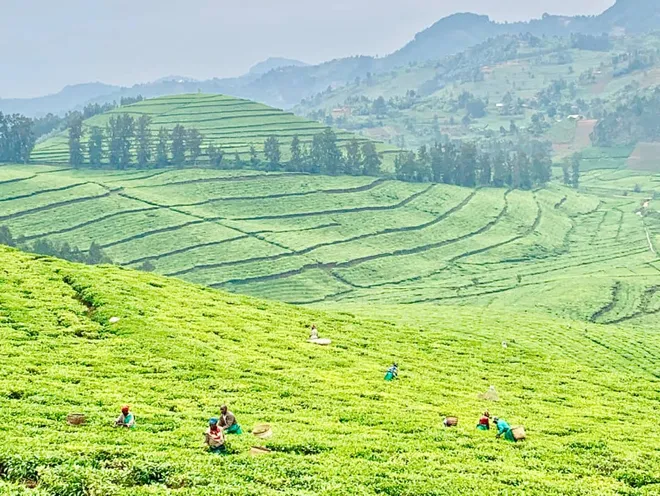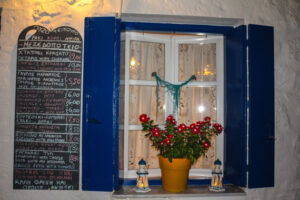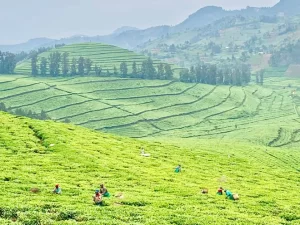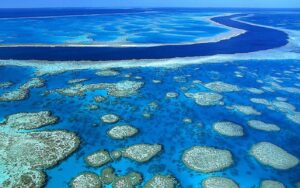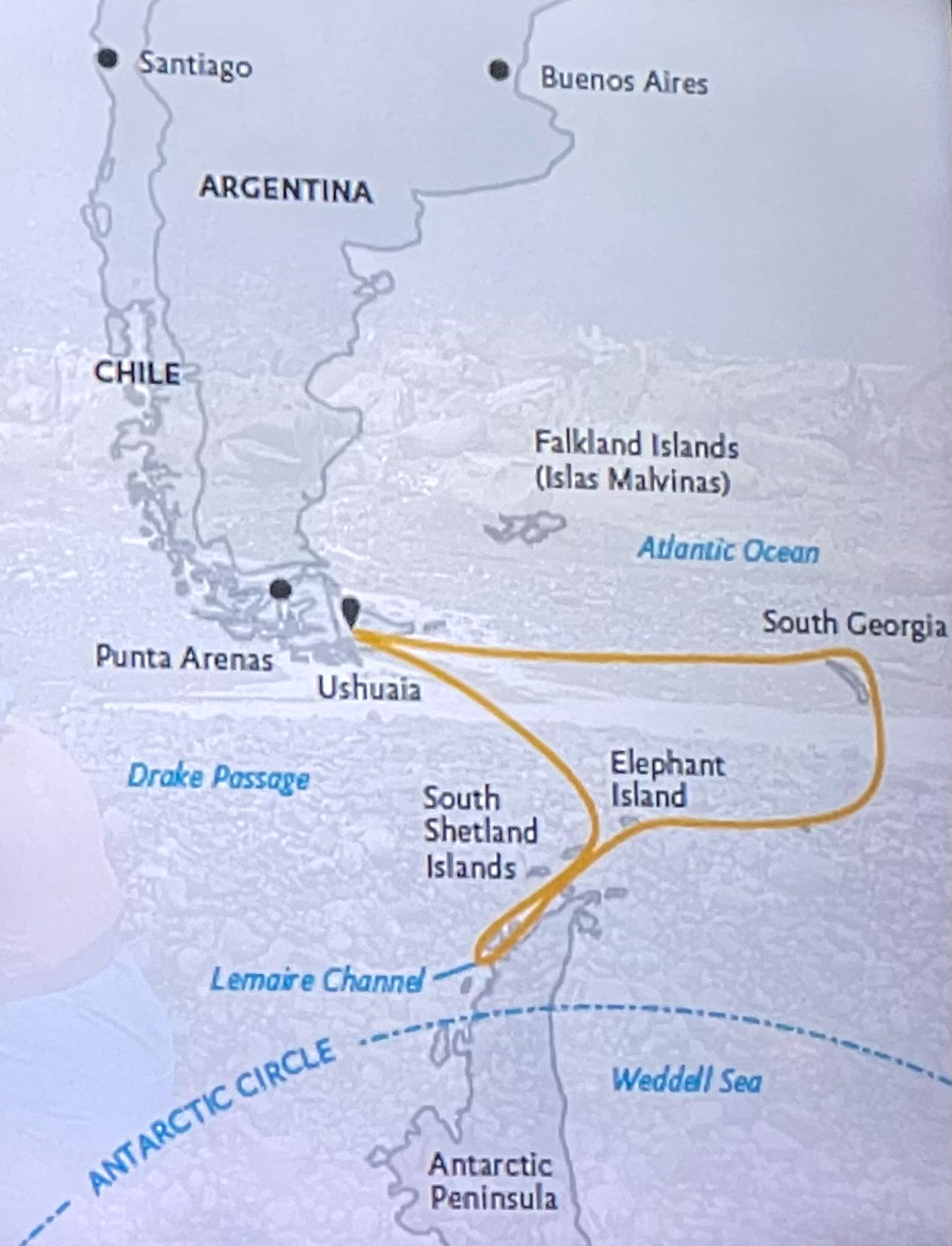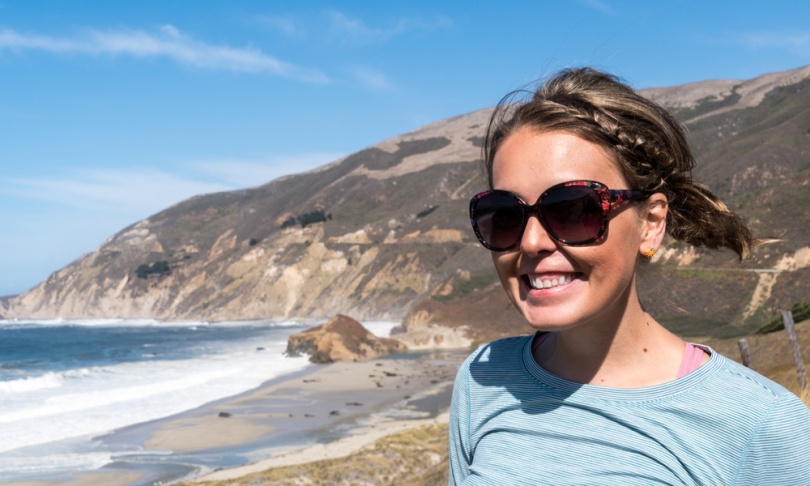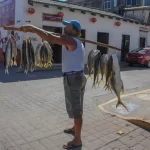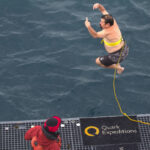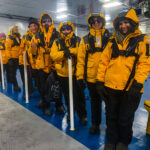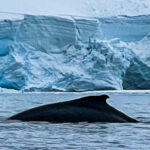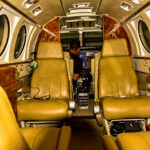Rwanda’s spellbinding landscape of endless hills and valleys is decorated with tea plantations. Even though the nation is a relative newcomer to the industry, it is one of the largest tea-producing nations in Africa.
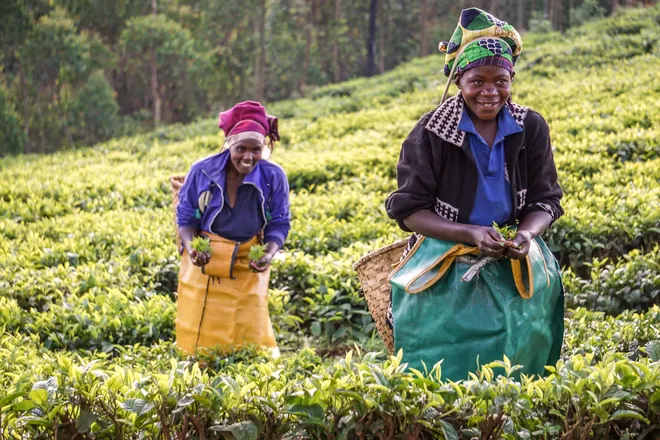
Two women handpick tea leaves. Only the top three leaves are used; the rest are discarded.
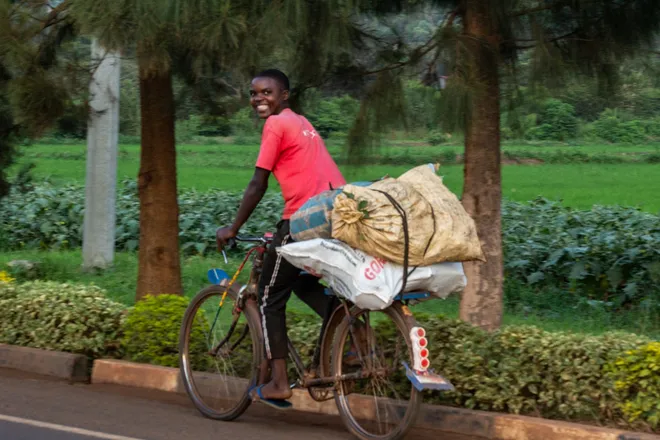
A boy transports tea on a bicycle back to his village. The locals of this astonishing nation are kind, and a smile is waiting for you at every turn.
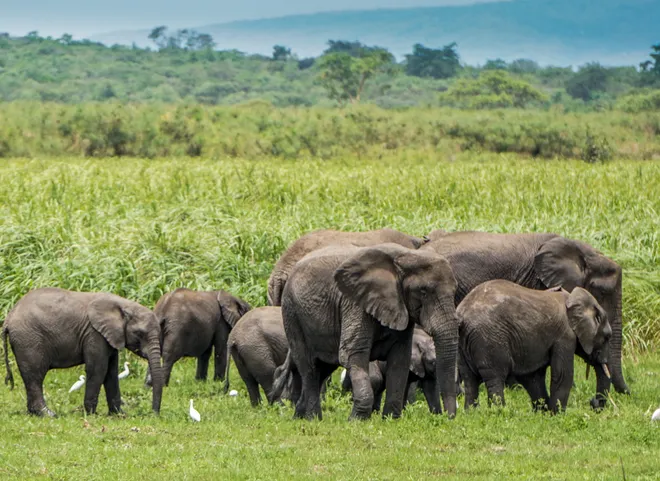
Africa Parks, based in Johannesburg, manages Akagera National Park in southeast Rwanda. Laws created to curtail poaching have increased the number of animals there to over 12,000. Animals like this herd of elephants are closely watched, studied and monitored through an intricate tracking system.
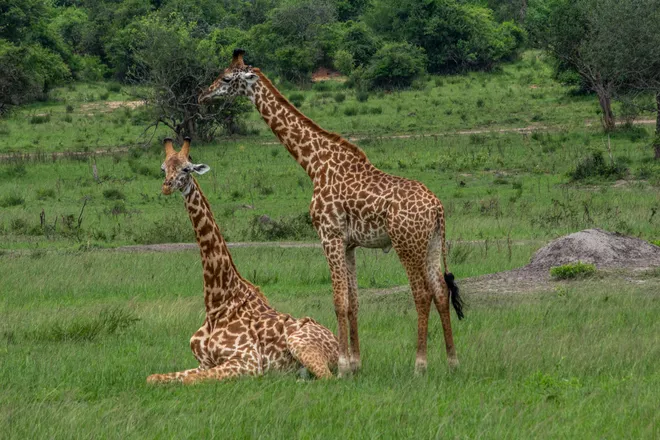
Akagera National Park might not have the timeless allure of the Masai Mara or the Serengeti, but part of its charm is that it remains an under-the-radar African safari game park. Lions and rhinos are making a comeback while the giraffe population is thriving.
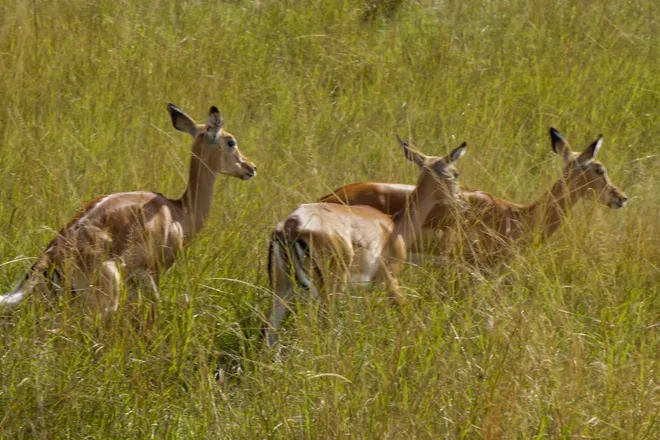
Graceful impalas are antelopes that roam the grasslands and woodland edges of Akagera National Park. They are herbivores and are preyed upon by hyenas and crocodiles.
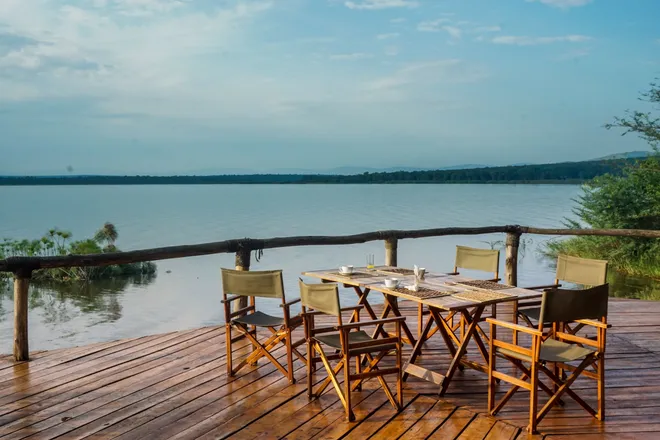
Lake Ihema is located in the south section of Akagera National Park. It covers an area of close to 60 miles and is the biggest lake in the park. The lake is rich in biodiversity, and 550 species of birds visit its shores.
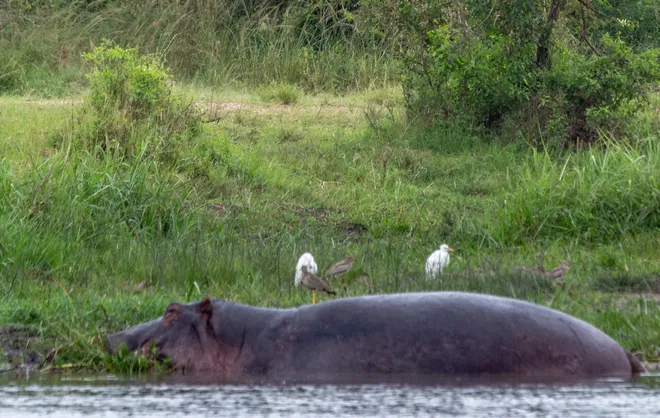
In Akagera National Park, the hippopotamus population is growing thanks to conversation efforts. The rotund animals are among the largest living mammals. They spend most of their time submerged to keep their skin cool.
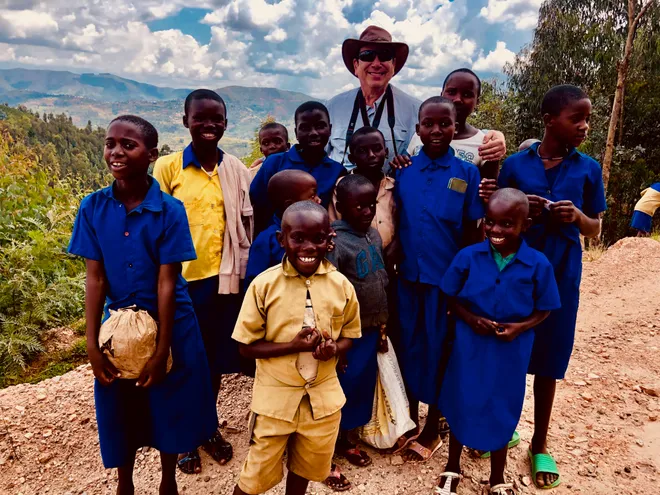
Curious children swarm up close for a photo. Everywhere you turn, encounters with smiling faces flourish in this inspiring land.
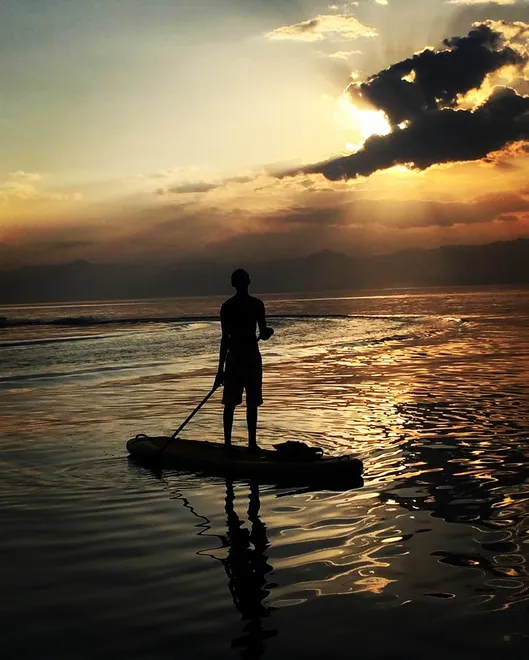
Lake Kivu on Rwanda’s western border is the sixth-largest lake in Africa and shares a border with neighboring Democratic Republic of Congo. The lakefront town of Gisenyi is the gateway to water sports like stand-up paddleboarding and kayaking.
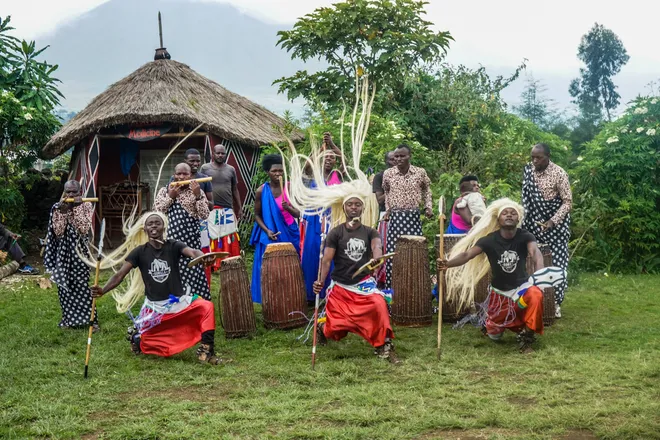
A visit to the Iby’iwacu Cultural Village located near Volcanoes National Park allows visitors to immerse themselves in local culture.
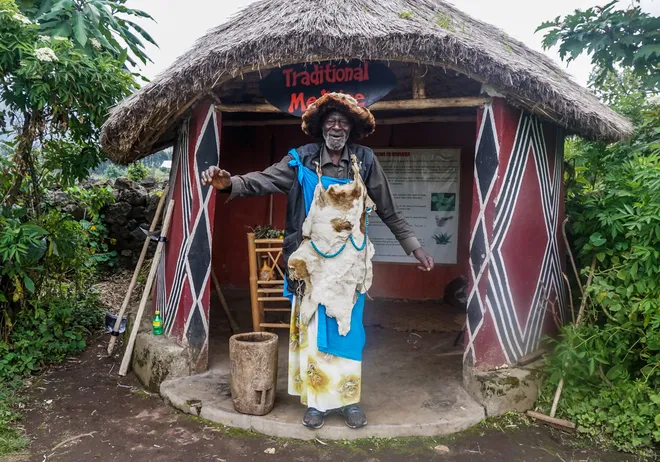
The medicine man plays a vital role. Traditional healing methods are sourced from nature and the forest.
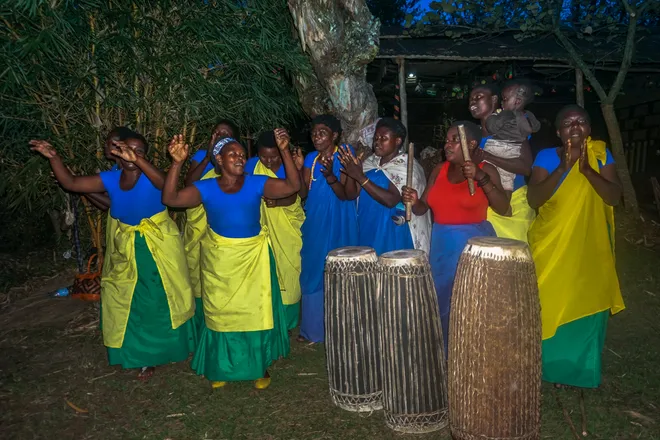
Music and dance are an integral part of cultural events and social gatherings. Celebratory dances by women are accompanied by enthusiastic drumming.
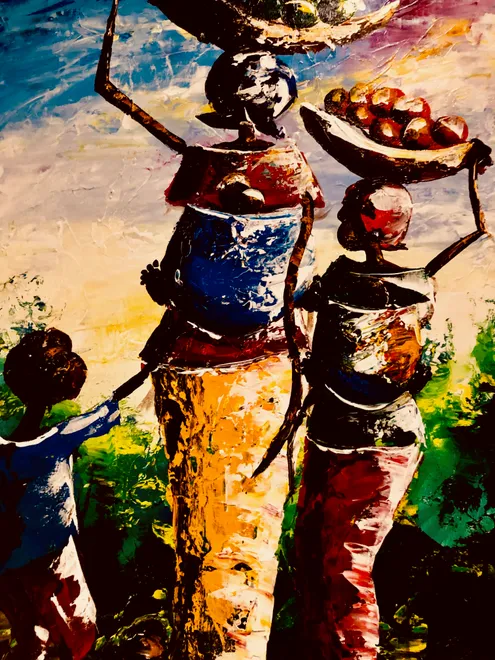
A wide range of handicrafts is made in rural areas, including ceramics, woodcarvings and paintings. Red Rocks Rwanda and Iby’iwacu Cultural Village support local artisans while teaching sustainable tourism.
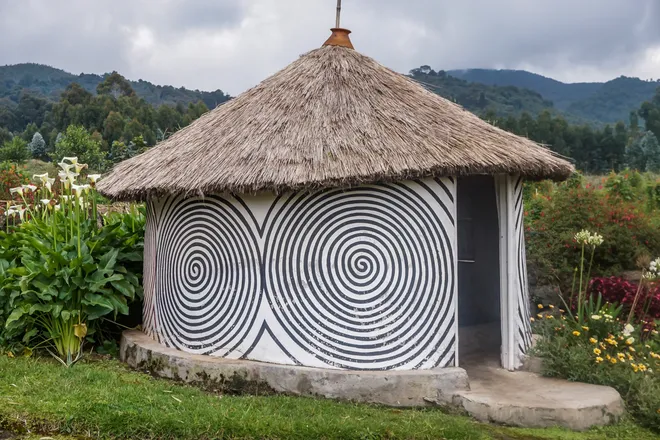
The traditional huts are made of mud and covered with thatched grass and later painted.
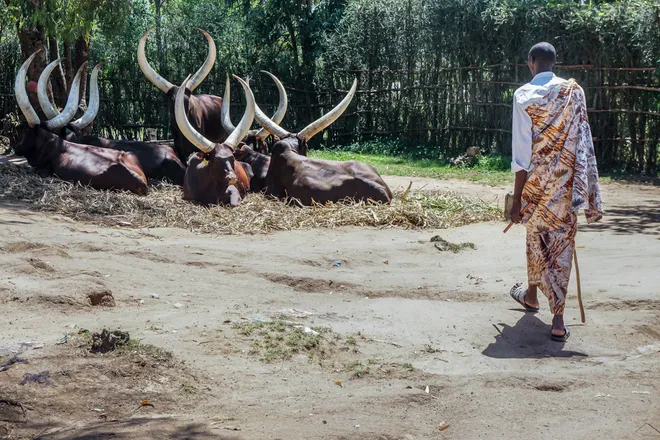
A visit to the King’s Palace in Nyanza. These long-horned Inyambo cattle are descended from the king’s herd.
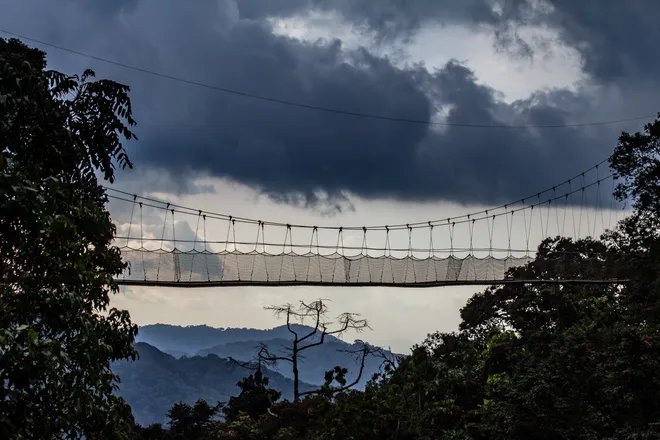
In the southwest corner of Rwanda , Nyungwe Forest National Park is a vast tropical rainforest. The park is filled with spectacular biodiversity, including lofty mahogany trees. This suspension bridge is East Africa’s highest canopy walk.
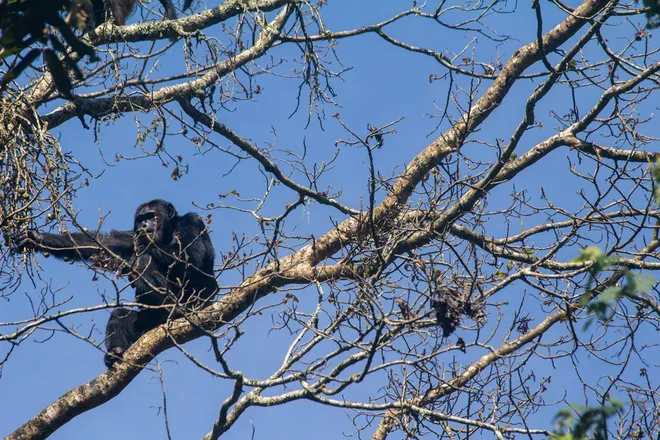
Primate safaris in Nyungwe Forest National Park begin very early, at 5 a.m. Many times your nature guides have to clear paths through dense forest to find primates perched high in treetops.
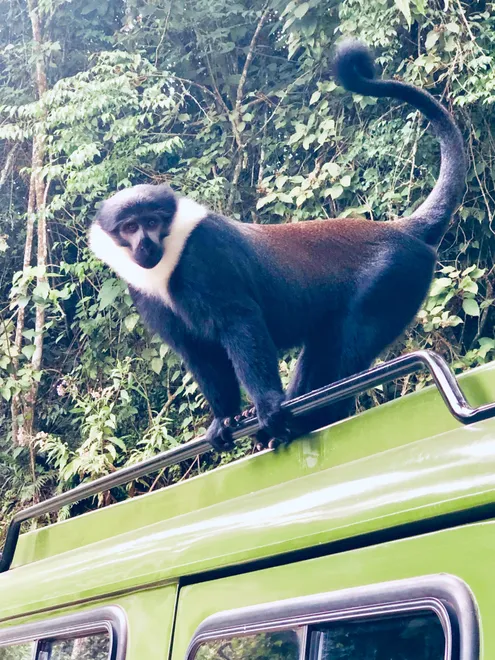
A L’Hoest’s monkey sits on top of a modified Land Cruiser. Characterized by a white beard, the monkeys live mostly in the Nyungwe mountain forest. By African standards, Rwanda is a small nation, but the “Land of a Thousand Hills” is brimming with wildlife encounters
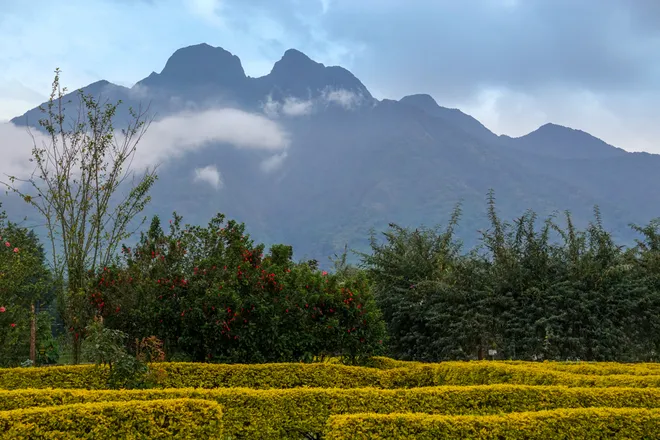
Volcanoes National Park is home to five of the eight volcanoes in the Virunga Mountains. The area spans 100 square miles of northwest Rwanda. It is the gateway to the activity of gorilla tracking.
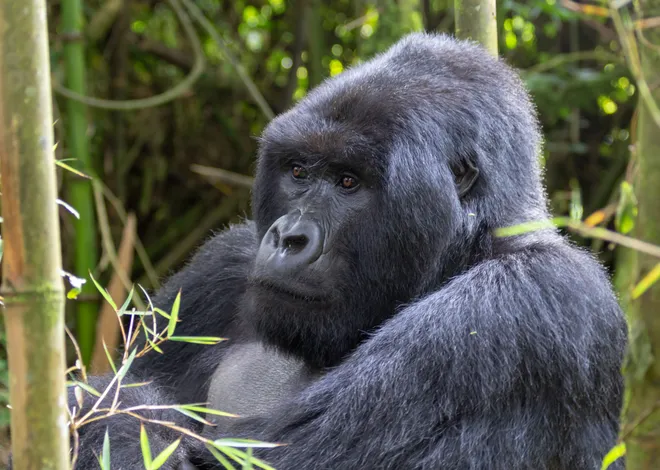
“When you realize the value of all life, you dwell less on what is past and concentrate more on the preservation of the future,” said American primatologist and conservationist Dian Fossey, who studied the mountain gorillas of Volcanoes National Park in Rwanda.
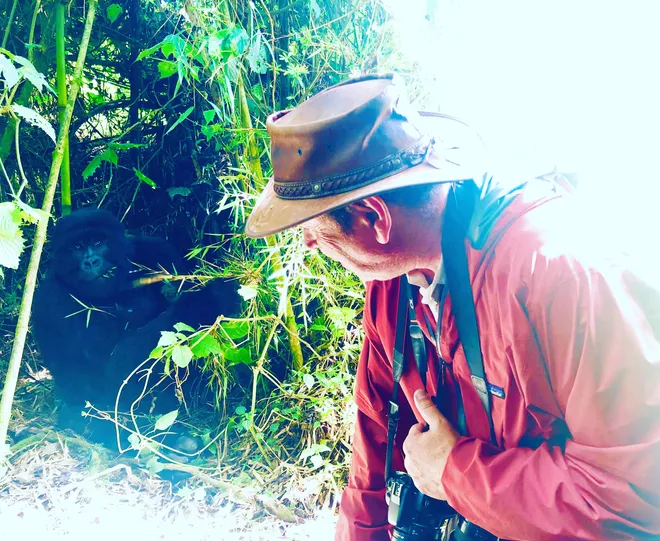
Having a staring contest with a curious gorilla in Volcanoes National Park. A gorilla family is known as a troop or a band. They travel in packs of 6 to 15, led by a strong dominant male.
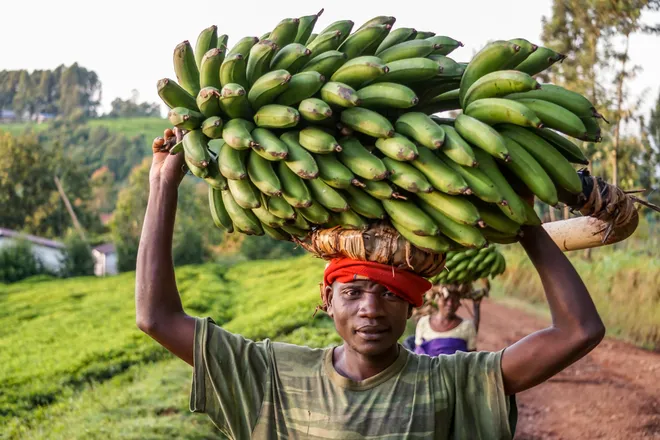
The daily task of transporting bananas. As in many parts of Africa, the practice of head-carrying has been passed on from past generations and can be seen throughout the country. It’s an efficient way of transporting fruits, tea and clothing.
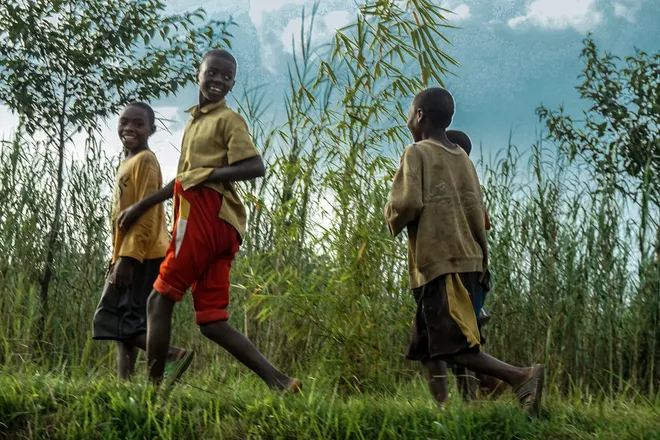
As visitors traverse the nation, they have many opportunities for encounters with locals.
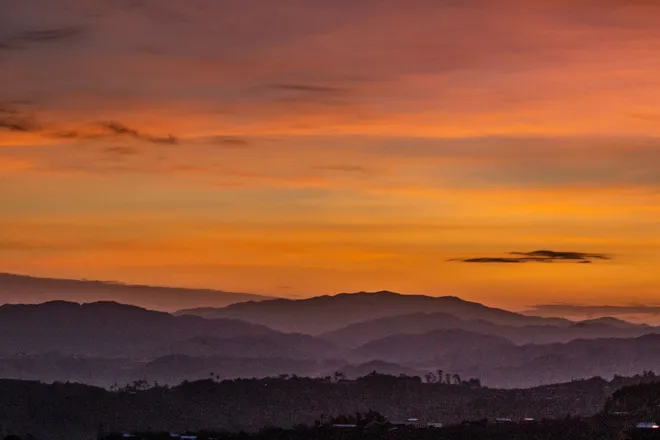
It’s definitely worth getting up early to photograph the warm glow of a Rwanda sunrise.

